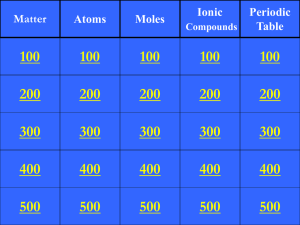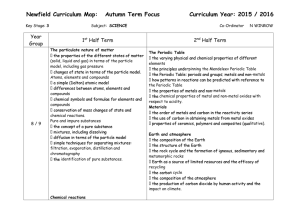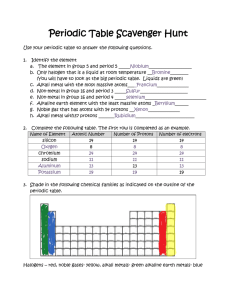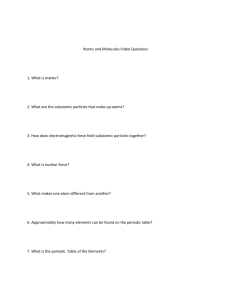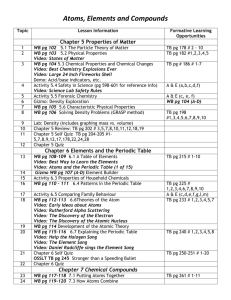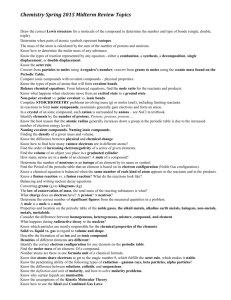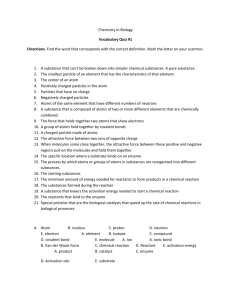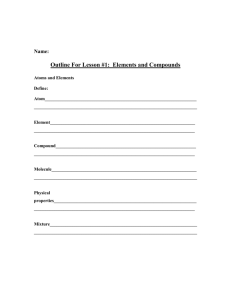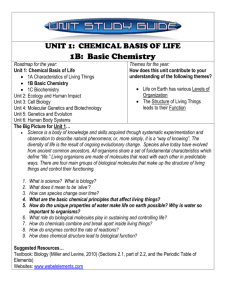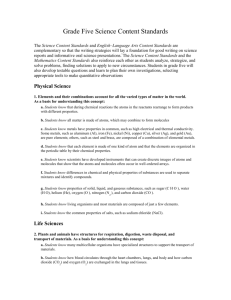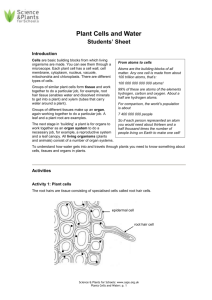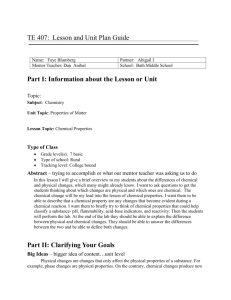8 th Grade Science End of Course Exam
advertisement
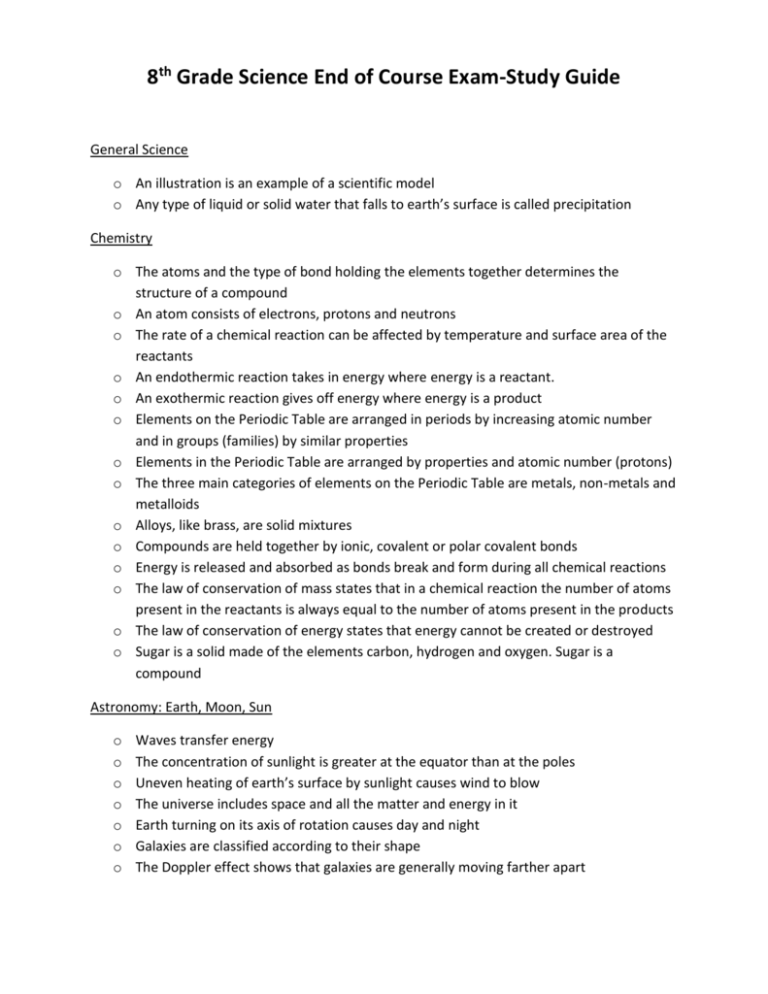
8th Grade Science End of Course Exam-Study Guide General Science o An illustration is an example of a scientific model o Any type of liquid or solid water that falls to earth’s surface is called precipitation Chemistry o The atoms and the type of bond holding the elements together determines the structure of a compound o An atom consists of electrons, protons and neutrons o The rate of a chemical reaction can be affected by temperature and surface area of the reactants o An endothermic reaction takes in energy where energy is a reactant. o An exothermic reaction gives off energy where energy is a product o Elements on the Periodic Table are arranged in periods by increasing atomic number and in groups (families) by similar properties o Elements in the Periodic Table are arranged by properties and atomic number (protons) o The three main categories of elements on the Periodic Table are metals, non-metals and metalloids o Alloys, like brass, are solid mixtures o Compounds are held together by ionic, covalent or polar covalent bonds o Energy is released and absorbed as bonds break and form during all chemical reactions o The law of conservation of mass states that in a chemical reaction the number of atoms present in the reactants is always equal to the number of atoms present in the products o The law of conservation of energy states that energy cannot be created or destroyed o Sugar is a solid made of the elements carbon, hydrogen and oxygen. Sugar is a compound Astronomy: Earth, Moon, Sun o o o o o o o Waves transfer energy The concentration of sunlight is greater at the equator than at the poles Uneven heating of earth’s surface by sunlight causes wind to blow The universe includes space and all the matter and energy in it Earth turning on its axis of rotation causes day and night Galaxies are classified according to their shape The Doppler effect shows that galaxies are generally moving farther apart Environment o Without the greenhouse effect, earth would be much colder Life Science o o o o o o o o o o o o o o o o o o o Van Leewenhoek was one of the first people to see “live” cells by using a microscope The smallest unit that can perform basic activities of life is a cell One characteristic of all living things is that they reproduce Organelles are cell structures that perform a variety of activities Mitochondria is an organelle that releases energy in all cells The protective covering that encloses every cell is called the cell membrane A plant cell organelle that uses energy from sunlight to make (glucose) sugar is called a chloroplast Plant cells have a cell wall & chloroplasts. Animal cells do not Photosynthesis captures energy and respiration releases energy During photosynthesis light energy changes to chemical energy After mitosis, the number of chromosomes present in each daughter cell is equal to that in the parent cell Almost all multicellular organisms on Earth belong to the domain Eukarya Bacteria is an example of a prokaryotic organism Different tissues working together to perform a particular function make up an organ In order to function properly every cell must have a complete copy of DNA Traits are inherited when genes are passes from parent to offspring Genetic engineering changes the DNA of an organism Suppose the tall (T) allele is dominant in a plant, the genotype of the short plant would be (tt) Cloning involves producing an offspring that is genetically identical to one parent Data Analysis & Graphing Interpretation o Coordinate graphs-360⁰-4 quadrants (+X+Y, +X-Y, -X+Y, -X-Y). You can combine 2 dependent variables with 1 independent variable on a graph. o Box & Whiskers o Pie Chart o Bar Chart o Line Graph o Scatter Plot
